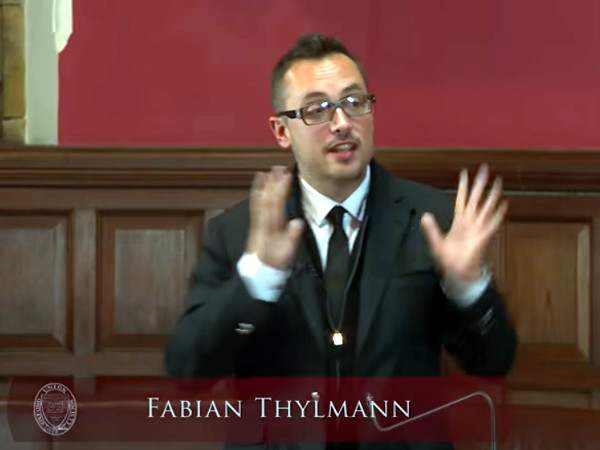What Rolling Stone Got Wrong About Pornhub
 MONTREAL – To be fair, my issue with the recent Rolling Stone piece “How the Internet Changed Porn” doesn’t involve its central thesis, or for that matter, involve any particularly significant point made in the article.
MONTREAL – To be fair, my issue with the recent Rolling Stone piece “How the Internet Changed Porn” doesn’t involve its central thesis, or for that matter, involve any particularly significant point made in the article.
Now that I’ve copped to the fact I’m nitpicking, here’s the line that jumped off the page and drove my hand into a nose-threatening facepalm: “[Pornhub] was guided to market dominance by Fabian Thylmann, who first got the idea to create an easy-to-use site for free pornography as a teenager trading nude jpgs on Compuserve in 1994.”
In a word: No. Thylmann did not guide Pornhub into market dominance.
I feel safe flatly asserting this because Pornhub was already market-dominant by the time Thylmann became its public face.
I suppose I shouldn’t be shocked by the fact a Rolling Stone writer isn’t aware of the timeline. I might quibble with the claim, but there’s no question Pornhub has become a significantly more visible brand in the years since it changed hands. Similarly without question, a larger percentage of the porn-consuming public is aware of the site’s existence now than in 2010.
At the same time, it’s equally indisputable to say by the time Thylmann acquired the site in March 2010, Pornhub already was drawing enough traffic to be of enormous concern (to put it mildly) to those who witnessed their content being published on the site without their consent.
Almost two years before Pornhub changed hands, I attended an industry trade event (I believe it was Cybernet Expo in San Francisco) and sat in on a panel discussion during which the speakers spent most of their time addressing the question of what could be done about these newfangled “tube sites” that were stealing everyone’s content and quickly climbing the traffic charts.
Pornhub wasn’t the only site mentioned during the session, but it sure was the chief one. Solutions offered by the speakers and audience members ranged from filing lawsuits to certain “extralegal responses” one might expect to hear in the context of a movie about the Mafia.
I can’t put precise numbers on how much traffic Pornhub was pulling at the time, but I’d been in the industry for well over 10 years by that point and I’d seen no shortage of popular free sites built on unlicensed content. The furor over Pornhub told me all I needed to know about how and why it was different: Unlike many of its free-site predecessors, Pornhub had become a destination for porn surfers, not simply a “feeder” site that passed along users in great numbers to the subscription sites where much of Pornhub’s content originated.
The other reason I take issue with Rolling Stone blithely crediting Thylmann alone with Pornhub’s rise to market dominance is the guy was at the helm relatively briefly. He reportedly bought the site in March 2010 and sold it in October 2013.
The way Rolling Stone put it –- Thylmann “first got the idea to create an easy-to-use site for free pornography as a teenager trading nude jpgs on Compuserve in 1994” –- makes it sound like he was the first to dream up the idea of a free porn-trading platform. Frankly, this notion sounds rather absurd from the perspective of those of us who already were operating, advertising on and/or doing traffic trades with TGP sites back when Thylmann was still busy coding NATS (another thing he didn’t do by himself, it should be noted).
As I said, the above admittedly is nitpicking when you consider the full context of the Rolling Stone piece, which isn’t primarily about Thylmann’s role in the rise of Pornhub –- or even primarily about Pornhub’s role in how the internet changed porn, for that matter.
Really, it’s just another example of how, despite their presumable desire to get the story right and despite the ready availability of a great deal of information about the industry, the mainstream media still largely flies blind when it tries to go beyond surface-level depth in its coverage of the porn business.
Image: Fabian Thylmann participates in a debate about sex work at Oxford Union, 2014.













